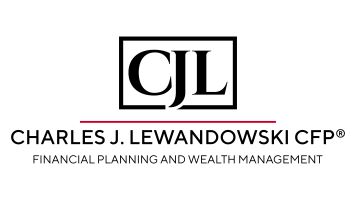Three Stimulus Benefits You Need to Know in 2021

Welcome to the Year 2021!
The end of 2020 produced quite a bit of drama for many who follow our government and its impact on personal finances. After a great deal of mud wrestling, a bill was signed by the President that ultimately rewarded many citizens with stimulus checks. The checks were clearly the most publicized portion of the legislation. However, whether or not you are one of the fortunate people who received these checks, you should be aware of several provisions buried deep in the 5,593(!)pages that can affect your personal and business tax planning in 2021.
Here are three benefits that may apply to you and that shouldn’t be overlooked.

- You can deduct some charitable contributions even if you don’t itemize your deductions. Several years ago, the tax code was modified to reduce deductible expenses and increase the standard deduction. As a result, many donors could no longer claim an itemized deduction for their contributions to charities.The CARES Act of 2020 provided for a reduction of taxable income for qualified charitable contributions even if you don’t itemize your deductions. This reduction of taxable income now applies for 2021. It can be claimed for up to $600 for a couple married and filing jointly. If you are in a situation where you are charitably inclined and have extra cash on hand or you have received stimulus check and you don’t necessarily need it, you can donate that money to your favorite section 501c(3) charity and receive a deduction on your tax return.

- Dollars saved in Flex Spending and Dependent Care accounts in 2020 can be used in 2021. Early in my career, I worked for a great Fortune 500 company that had extraordinary employee benefits including Flex Spending and Dependent Care accounts. Each year, I would estimate how much I would spend on my daughter’s day care and our family health care expenses. I would then attempt to save in these accounts without leaving a balance at the end of the year because they are “Use it or Lose it” accounts. Typically, you cannot carry over savings left in these accounts from one year to the next. If the account balances are not spent, you must forfeit the savings. However, Congress recognized that many people couldn’t use these dollars for Health Care or Day Care because of COVID lockdowns. As a result, they have put the forfeiture provision on hold and you can now spend balances saved in 2020 on 2021 expenses.
- Certain meal expenses may be 100% deductible. The restaurant industry may be the one sector of the economy that has been most affected by shutdowns. Congress has tried to stimulate restaurant purchases by increasing the deductibility of expenses associated with business meals provided by restaurants. Previously, you could only deduct 50% of the cost of meals consumed while conducting business. In 2021, 100% of these expenses can be deducted if the meal was supplied by a restaurant. Your three-martini lunch can now be entirely written off if you consumed it while conducting business and it is supplied by a restaurant. Cheers!

The second COVID Relief bill provided additional benefits related to Personal Paycheck Protection loans, tax credits, and even student loans. You may be able to take advantage of several of these provisions. Now is the time to consult with your team of trusted advisors to ensure that you aren’t missing some financial relief in 2021. Call me and we’ll get started.
01/2021
Advisory services offered through Capital Analysts or Lincoln Investment, Registered Investment Advisers. Securities offered through Lincoln Investment, Broker Dealer, Member FINRA/SIPC.www.lincolninvestment.com
West Coast Financial Group, Inc. and the above firms are independent and non-affiliated.
Tax advice is not offered through, nor supervised by Lincoln Investment or Capital Analysts.
Contributions to a Roth IRA are not tax deductible and there is no mandatory distribution age. All earnings and principal are tax free if rules and regulations are followed. Eligibility for a Roth account depends on income. Principal contributions can be withdrawn any time without penalty (subject to some minimal conditions).
